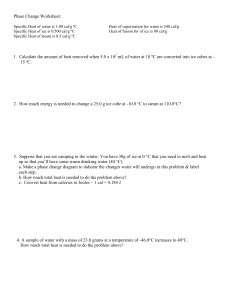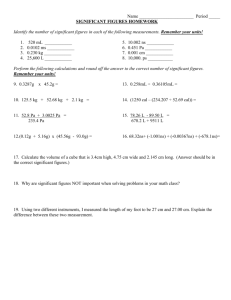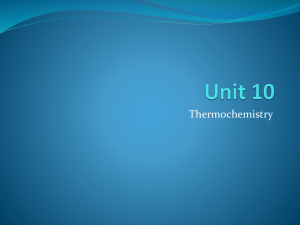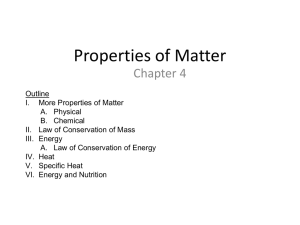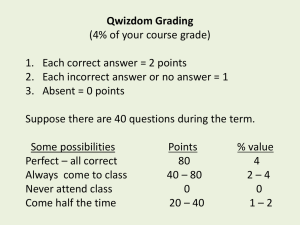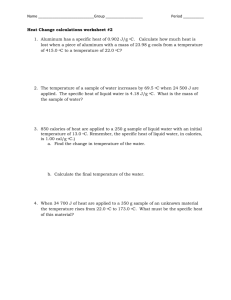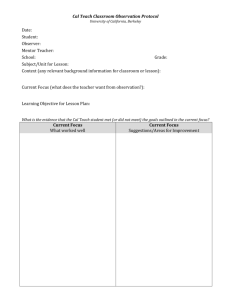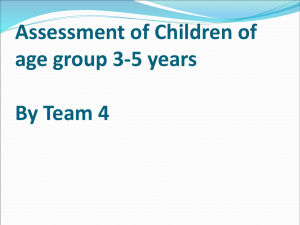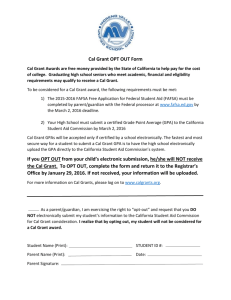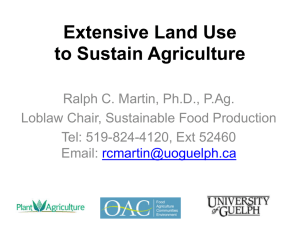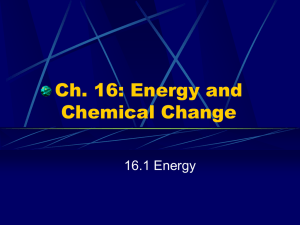the ppt version of the first part
advertisement
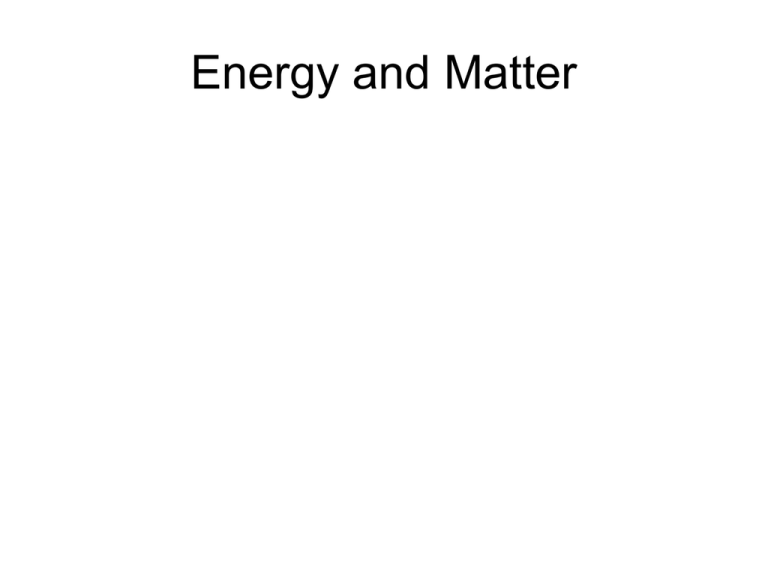
Energy and Matter Energy • Energy has many forms. Heat is the principal form of energy in chemistry. • Units of energy – • calorie, kilocalorie (Cal) [note capitalization of “C” in Cal], Joules, kiloJoules. • 1 kcal = 1000 cal • 1 cal = 4.184 Joules • 1 kcal = 4.184 kJ Definitions / Thermal Properties • Heat capacity is the amount of heat required to raise the temperature of that body 1 K. (note that this is the same temperate change of 1 oC) • Specific heat capacity of water is cal J 1.00 4.184 gK gK Thermal properties • Calorimetry – an object undergoing a temperature change without a chemical reaction or change of state absorbs or discharges an amount of heat equal to its heat capacity times the temperature change. • Heat exchange = (heat capacity) x (temperature change) Example • How many joules are required to heat 100 g of copper (sp. Heat = 0.389 J/gK) from 10 oC to 100oC? The same quantity of heat is added to 100 g of aluminum (sp. Heat = 0.908 J/gK) at 10 oC. Which gets hotter – copper or aluminum? Example • A steam boiler is made of steel and weighs 900 kg. The boiler contains 400 kg of water. Assuming that 70% of the heat is delivered to boiler and water, how much heat is required to raise the temperature of the whole from 10 oC to 100oC? Specific heat capacity of steel is 0.11 kcal / kgK. Example • A 25.0 g sample of an alloy was heated to 100.0 oC and dropped into a beaker containing 90 g of water at 25.32 oC. The temperature of the water rose to a final value of 27.18 oC. What is the specific heat of the alloy? Example • Determine the resulting temperature when 150 g of ice at 0 oC is mixed with 300 g of water at 50 oC. The heat of fusion of ice is 80 cal/g. Example • How much heat is required to convert 40 g of ice (sp. Heat = 0.5 cal/gK) at -10 oC to steam (sp. Heat = 0.5 cal/gK) at 120 oC? The heat of fusion of ice is 80 cal/g. The heat of vaporization of water is 540 cal/g.
